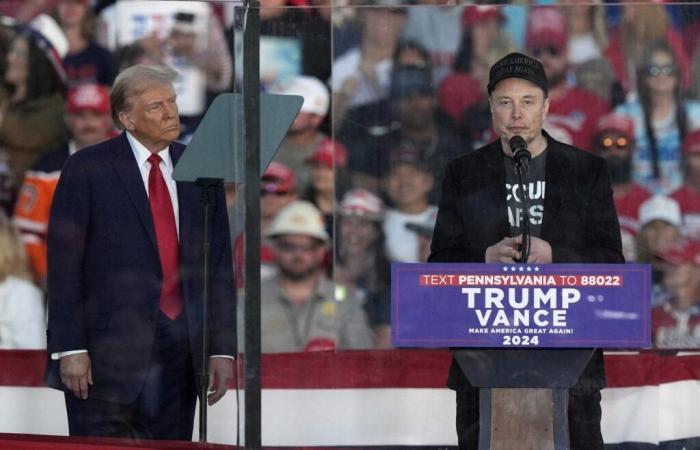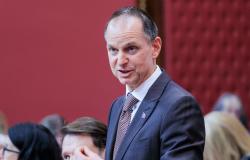Canadian environmentalists are watching with apprehension what happens next following the election of Donald Trump as president of the United States. Mr. Trump’s unpredictability, however, poses a challenge to their analysis.
At Équiterre, for example, the director of government relations, Marc-André Viau, has no illusions that the economic interests behind his campaign “are not in favor of more restrictive environmental measures or transitions environmental issues, energy transitions in particular. But he underlines at the same time that, in the case of Donald Trump, “his biggest contributor is still a manufacturer of electric cars (Elon Musk, of Tesla), so it can go in several directions”.
He therefore hesitates to place Donald Trump frankly in the climate skeptic camp. “In fact, we don’t really know what he is or what his ideas are. “There are a lot of things that are very enigmatic and that are going to be very unstable as well.”
Past influence
However, he is concerned about his influence in Canada in light of his first stint in the White House. “We saw it during the first mandate, when his administration made changes to the regulation of polluting emissions from vehicles, exhaust emissions. As our automobile sector is extremely intertwined with the American automobile sector – we have the same regulations – the regulatory change applied automatically in Canada.”
Another example: Canada immediately followed in the footsteps of the Americans when they imposed 100% tariffs on Chinese electric vehicles, much more economical than vehicles built here. “We no longer have access to these vehicles because we imposed the same 100% tariffs on them, following the example of the United States. Yes, we are protecting the job market, we are protecting the investments that have been made in the critical minerals sector, for example, or in the development of batteries. But the fact remains that we align policies a lot with each other,” says Mr. Viau.
Creating doubts about Poilievre
On the other hand, the reaction of Keith Stewart, energy strategist at Greenpeace Canada, is surprising, he who sees Donald Trump’s victory as a brake on the rise of Pierre Poilievre’s conservatives. “Trump’s victory is terrible for the world, but it will also be bad news for conservatives here in Canada. Once people learn about the attacks on human rights and the environment south of the border, they will have doubts about Canada’s version of Trump-style populism.”
He argues that Pierre Poilievre, like Donald Trump, “has promised to give the oil industry everything it asks for”, which will lead to consequences “increasingly visible, in terms of damage caused by floods, storms and wildfires fueled by climate change. Mr. Stewart believes Canadians follow American policy “because it always has an impact on us. And I don’t think they’ll like what they see under Trump.”
He seems convinced that citizens see the link between extreme weather events, wildfires, floods and climate change, “but I think they don’t yet see the link between climate change and fossil fuels. We need to make the connection between these incredible wildfires, floods, extreme weather and the burning of fossil fuels. Once the population makes this connection, they will begin to ask their leaders: what are you going to do to get us off fossil fuels? Pierre Poilievre has no answer to that.”
Unavoidable consequences
In the case of Donald Trump, Keith Stewart believes he will likely be able to slow, but not reverse, the transition away from fossil fuels, “because the shift to clean energy is now driven primarily by economics rather than politics.
Doing nothing, adds Marc-André Viau, will necessarily involve significant costs in the long term. “Whatever the government chooses, the impact of climate change will not be felt less than before. There are still consequences that will have to be managed and that, regardless of the administration, it will be grappling with these consequences.






